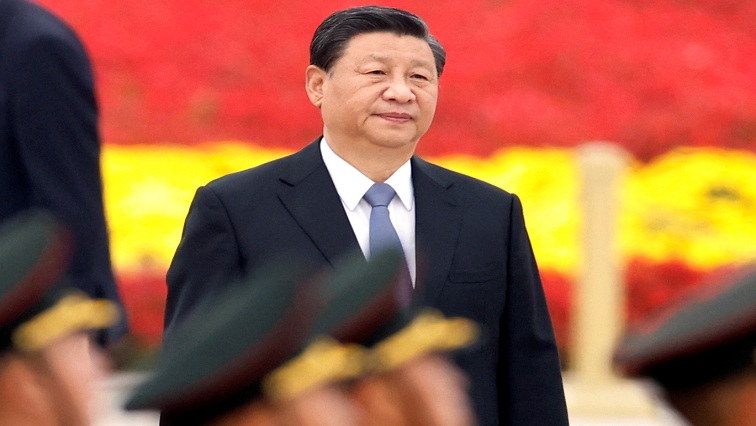Seven universities have collaborated in the inaugural higher education Essay Contest, which has been sponsored by the Embassy of China in SA.
The award ceremony was attended by academics and students in Pretoria and the seven brightest minds were rewarded with the top Chinese Ambassador Award, which paves the way for the possible continuation of tertiary education in China through new networks.
The seven leading universities that oversaw the participation of more than 350 contestants are UCT, Wits, UJ, Stellenbosch, Rhodes, Durban University of Technology and the University of the Western Cape. The theme of the essay was “Xi Jinping’s Thoughts through SA University Students’ Eyes”.
The award ceremony was held in person in Pretoria, and the Deputy Minister of Higher Education, Science and Technology, Buti Manamela, delivered the keynote address.
Manamela spoke about the “rise of China in the last four decades”, and also the “leadership lessons SA can extract from China’s rise to power in geopolitics”.
A total of 59 students received different awards for their outstanding essays that were chosen as winners.
Manamela explained: “The governments of SA and China share a long and proud history of ward relations and bilateral cooperation, in a number of important development areas. Today’s award ceremony is further testimony to this cordial relationship that exists between our two great nations.”
He also said that China “has the largest basic education system in the world with almost 260 million students and over 15 million teachers in over 500 000 schools”.
Speaking about the centrality of the State in development, Manamela said: “The economic success of China, demonstrates that, contrary to the assertion that is often made in Western development literature, the State can play a leading role in the development of a country, but also helping a country achieve higher economic development levels. Today, China has far greater State capacity than any other developing country.”
The success of China which SA intends to copy is also in the application of discipline in education and across all spheres of life.
Manamela said: “Under the leadership of Xi Jinping, over 200 000 (Communist Party of China) officials were punished for corruption in the last 10 years. More than 4.6 million officials around the country have been probed for corruption. These cases included 553 officials at ministerial level and above.”
Deputy Minister Manamela also issued statistical data to back up his evidence of China’s constant and continuous development, saying the success was driven by the government’s “passion” to improve the lives of ordinary people.
“Over the past 20 years,” he said, “China’s literacy levels have risen dramatically and now stand at 95%. As a result, China has a growing number of highly skilled workers and it trains 600 000 new engineers every year.”
Also speaking at the award ceremony, the Deputy Vice Chancellor of the DUT, Prof Keo Motaung, said: “I am so glad to see so many outstanding SA youth participated in this contest. Congratulations should be given to all the students involved in this contest, as they are having the awareness to look far to the east.”
Prof Motaung continued: “As a young generation, it is important for them looking for the answer to what enables China to get out of poverty, what enables Chinese people to cooperate globally and innovatively create mechanisms for win-win cooperation and what could South Africans learn from China about disciplined thought and disciplined action by government, business/industry, universities and broader organs of society?”
China’s ambassador to SA, Amb Chen Xiaodong, who hosted the award ceremony, said he hoped that the “long-standing friendship between our two countries” will be cherished and developed for many years to come.
“This essay contest is an unprecedented event that has set off a trend of learning Xi Jinping’s Thoughts on Socialism with Chinese Characteristics for a New Era in SA higher education sector.”
Amb Chen said the students’ submissions showed that they have shown a good grasp of the overall situation in the world.
“You also tried to draw strength from China’s development experience in the context of SA’s national conditions,” he told the students, many of who had travelled from the Eastern Cape, Western Cape and KZN provinces.
Amb Chen told them: “I have seen in you all the spirit of the younger generation of SA – your ability to think rationally and dialectically, your creativity of the mind and hands-on abilities.”
“Through you,” he said, “I can see the bright prospect for promoting mutual learning of our two civilizations.”
The SA students’ study of Xi Jinping’s Thoughts on Socialism with Chinese Characteristics “is an important window for friends from all over the world to understand China,” Amb Chen said.
He also said that over the past decade, “China has followed the people-centred approach in the battle against poverty, lifting nearly 100 million rural populations out of poverty, and completing the historical task of building a moderately prosperous society”.
He added: “China has over the past 10 years built the world’s largest education system, social security system and health care system.”
After a lengthy lesson on China’s rapid rise in world politics, Amb Chen explained some of the secrets, saying: “In pursuing modernization, China always adheres to the path of peaceful development and independent foreign policy of peace. We firmly oppose all forms of hegemony and power politics, cold-war mentality, interference in others’ internal affairs and imposition of double standards. China’s development strengthens the world’s forces for peace. China will never seek hegemony or engage in expansionism.”
I appreciate the presence of DM @ButiManamela &many SA teachers&students at Awarding Ceremony of the Essay Contest on the Theme of “Xi Jinping’s Thoughts through South African University Students’ Eyes” &Communication Event on #20thCPCNationalCongress held by Chinese Embassy. pic.twitter.com/mb1GZj6w77
— AmbCHENXiaodong (@ChinaAmbSA) November 12, 2022


